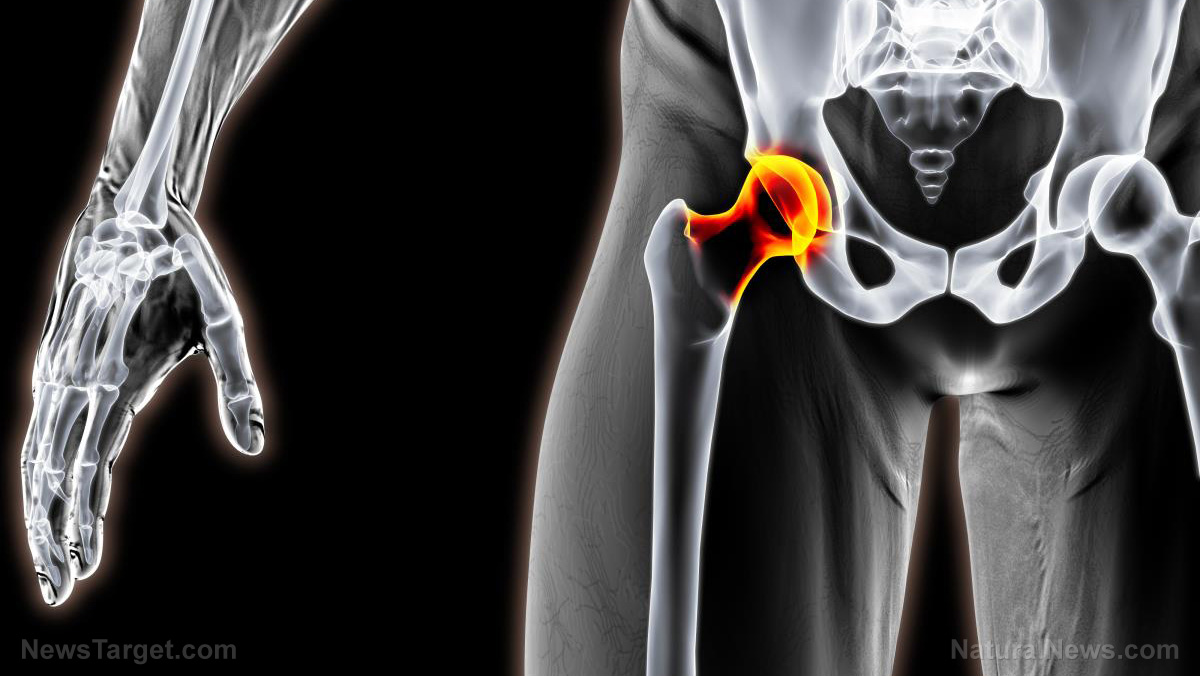Dietary niacin intake affects risk of hip fracture, hip bone mineral density
04/01/2020 / By Evangelyn Rodriguez

Niacin, also known as vitamin B3, is an essential micronutrient that helps the body break down carbohydrates, fats and proteins and convert them into energy. It is also involved in the production of certain hormones and plays a role in liver function. Niacin can be obtained from a wide variety of food sources, such as organ meats like liver, white meat and fish.
However, recent studies suggest that niacin intake may have an influence on the development of age-related diseases. To investigate this, researchers from different universities in the U.S. examined the association of dietary niacin intake with multiple skeletal health parameters, such as bone mineral density (BMD), hip fractures and body composition.
In their paper, which appeared in the Journal of Bone and Mineral Research, they detailed how consuming too much or too little of this important vitamin can affect bone health, particularly in the elderly.
Low or high intake of niacin can increase the risk of hip fractures in older adults
According to the researchers, interest in niacin has increased recently due to its potential involvement in diseases associated with aging. However, to date, no study has investigated its influence on bone health, particularly in African American and white men and women.
For their study, the researchers recruited 5,187 men and women from the Cardiovascular Health Study (CHS), a population-based study of coronary heart disease and stroke in adults aged 65 and above. These participants have a mean daily dietary niacin intake of 32.6 milligrams (mg) and were divided into four groups:

- Group 1, with an intake of 3.6 to 21.8 mg per day
- Group 2, with an intake of 21.9 to 30.2 mg per day
- Group 3, with an intake of 30.3 to 40.9 mg per day
- Group 4, with an intake of 41 to 102.4 mg per day
The researchers estimated the risk of incident hip fracture per 10 mg increment of daily dietary niacin intake using proportional hazards models. (Related: Niacin, vitamin B3, may improve cognitive and physical function by preventing neurological damage.)
They reported that during a median follow-up of 13 years, 725 participants had an incident hip fracture. Adjusting for demographic, clinical characteristics and diet, the researchers found that high and low dietary niacin intake was significantly associated with an increased risk of hip fractures.
The two groups with the lowest and highest niacin intake had an increased risk of incident hip fracture compared with groups 2 and 3. Meanwhile, dietary niacin intake was inversely associated with hip BMD. However, it had no significant association with total body BMD or any body composition measures.
Based on these findings, the researchers concluded that in elderly, community-dwelling African American and white men and women, high and low dietary niacin intake significantly increases the risk of hip fracture.
Food sources of niacin
Niacin is one of the eight important B-vitamins that the body needs. It fulfills various functions and is utilized for proper metabolism, nerve function and even antioxidant protection. According to the National Institutes of Health, the recommended dietary allowance (RDA) for niacin is 14 mg niacin equivalents (NE) for females 19 years old and above, and 16 mg NE for males of the same age range.
Niacin can be obtained from vitamin supplements or from the following food sources: (h/t to Healthline.com)
- Beef and chicken liver
- Chicken breast
- Tuna
- Turkey
- Wild-caught salmon
- Anchovies
- Lean cuts of pork
- Lean ground beef (preferably grass-fed and organic)
- Peanuts
- Avocados
- Brown rice
- Whole wheat products
- Mushrooms
- Green peas
- White potatoes and sweet potatoes
Niacin is an important nutrient that the human body cannot produce on its own, so eating foods that contain niacin regularly is a must. However, consuming too much (or too little) niacin may have detrimental effects on bone health, especially in older adults. To reduce your risk of bone fractures, follow the recommended amount of niacin that you need to consume daily and take niacin supplements only when necessary.
Sources include:
Submit a correction >>
Tagged Under:
#nutrition, aging, aging secrets, anti-aging science, bone health, diet, hip fractures, niacin, niacin intake, nutrients, prevention, research, supplements, vitamin B3
This article may contain statements that reflect the opinion of the author




















